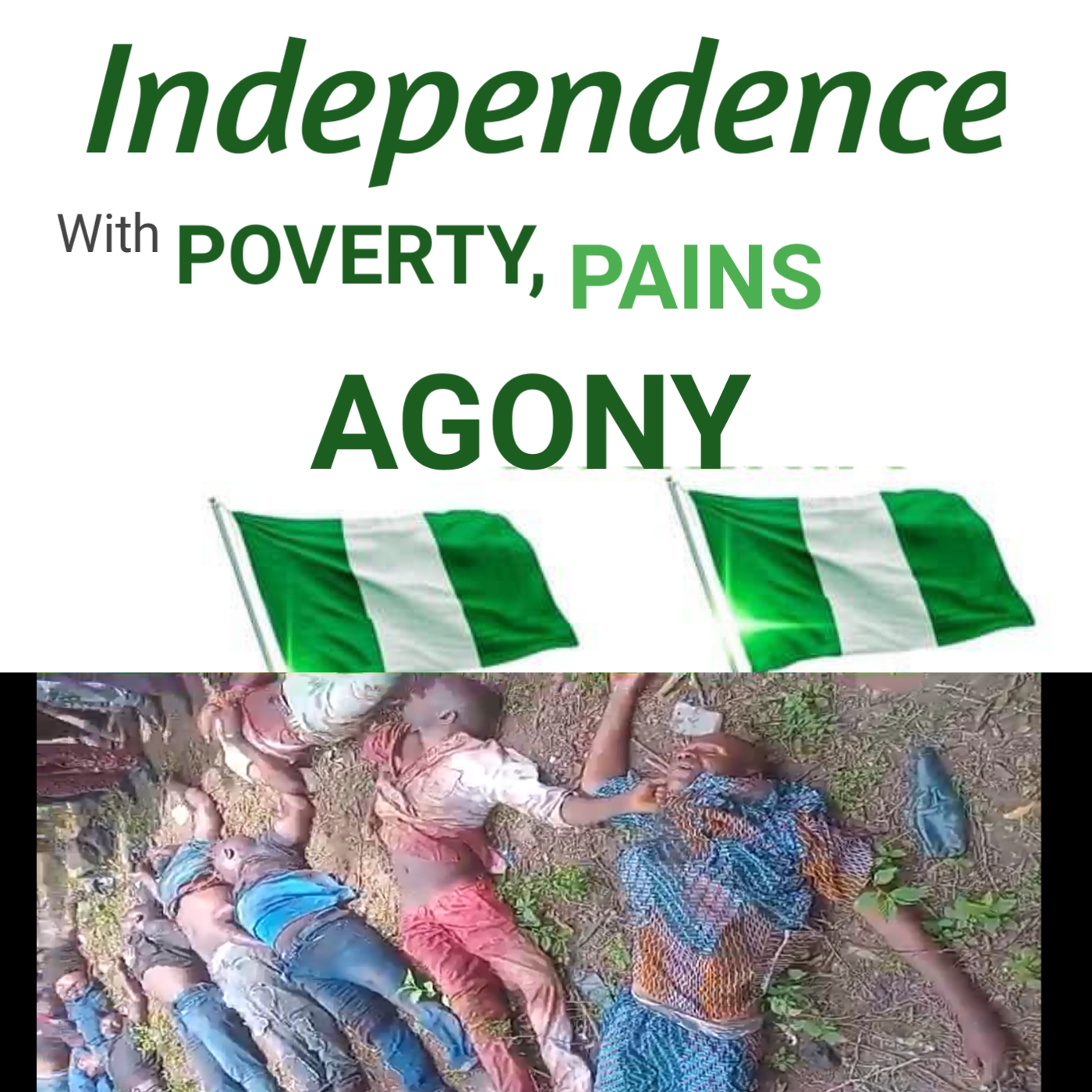
Nigeria’s Independence Paradox: A Plea to the President and Kwara State Governor to Address Poverty-Fueled Insecurity
Nigeria’s Independence and the Paradox of Prosperity Amidst Hardship: A Call to Action for the President and Kwara State Governor
Today, October 1st, Nigeria celebrates its independence, marking another year of sovereignty and aspirations for a better nation. As Nigerians reflect on the journey since gaining independence, the contrast between the country’s vast resources and the struggles of its citizens is stark.
The Speech of the President: Aspirations vs. Reality
The President’s speech on this day of celebration likely underscores visions for Nigeria’s growth, development, and prosperity. However, for many Nigerians, there’s a palpable disconnect between governmental narratives of progress and the harsh realities on the ground. Despite Nigeria being a country with significant oil wealth and other natural resources, generating substantial revenue monthly, a large portion of the population grapples with economic hardship.
Poverty and Insecurity: A Vicious Cycle
There’s a growing belief among observers that the increasing levels of poverty in Nigeria are intricately linked to the rising insecurity across the country. Factors fueling this narrative include:
- Economic Struggles: High poverty rates contribute to desperation and vulnerability, sometimes driving individuals toward criminal activities out of economic necessity.
- Lack of Opportunities: Limited access to education, jobs, and basic amenities can exacerbate feelings of marginalization.
- Resource Management: Questions abound regarding the management and equitable distribution of Nigeria’s wealth.
The Human Cost of Insecurity in Kwara State
Kwara State, like many parts of Nigeria, is grappling with severe insecurity issues, including banditry, kidnappings, and attacks on communities. Recent incidents highlight the gravity of the situation¹ ² ³:
- Attacks and Displacement: Communities in Kwara South, like Babanla and Oke-Ode in Ifelodun Local Government Area, have witnessed violent attacks leading to deaths, kidnappings, and mass displacement.
- Former Senate President’s Concerns: Dr. Bukola Saraki has criticized the Kwara State government for complacency regarding security, citing 70 deaths, 42 kidnappings, and 25 communities sacked in the past 12 months.
- Military Intervention: The Nigerian Army has relocated a General Officer Commanding to Kwara to boost response to insecurity.
- Community Leaders’ Appeals: Leaders like Anu Ibiwoye allege some bandits are foreign fighters, emphasizing the need for urgent government action.
Situation in Kwara State: Dire and Demanding Attention
- Porous Borders: Kwara’s borders with Niger and Kogi states are seen as transit routes for armed groups.
- Impact on Farming: Insecurity has disrupted farming, contributing to food insecurity and economic hardship.
- Calls for Action: Amb. Samuel Bill urges collective action, establishment of military bases, and use of technology for surveillance to restore peace.
Open Letter to President Bol Ahmed Tinubu and Governor Abdulrahman AbdulRazaq
To His Excellency, President Bola Ahmed Tinubu of the Federal Republic of Nigeria, and Governor Abdulrahman AbdulRazaq of Kwara State,
As Nigeria marks another year of independence, we underscore the urgent need for addressing intertwined challenges of poverty and insecurity, particularly in states like Kwara grappling with banditry and kidnappings.
We respectfully call on you to consider:
- Enhanced Security Measures: Deploy adequate security personnel and technology to hotspots in Kwara.
- Economic Diversification and Investment: Boost sectors like agriculture to create opportunities and reduce vulnerability.
- Transparency and Accountability: Ensure resource management aligns with citizens’ welfare.
- Community Engagement: Foster collaboration with local leaders and vigilantes for effective security strategies.
- Support for Victims: Establish mechanisms for assisting displaced persons and victims’ families.
Mr. President Bola Ahmed Tinubu and Governor Abdulrahman AbdulRazaq, collective efforts are pivotal in steering Nigeria toward a future where independence translates into security, prosperity, and dignity for all citizens.
Pathways Forward
Addressing Nigeria’s challenges requires multifaceted approaches:
- Economic Diversification: Reducing dependence on oil.
- Investment in Human Capital: Focus on education.
- Good Governance: Transparency in resource management.
- Security Strategies: Holistic military, intelligence, and socio-economic interventions.















